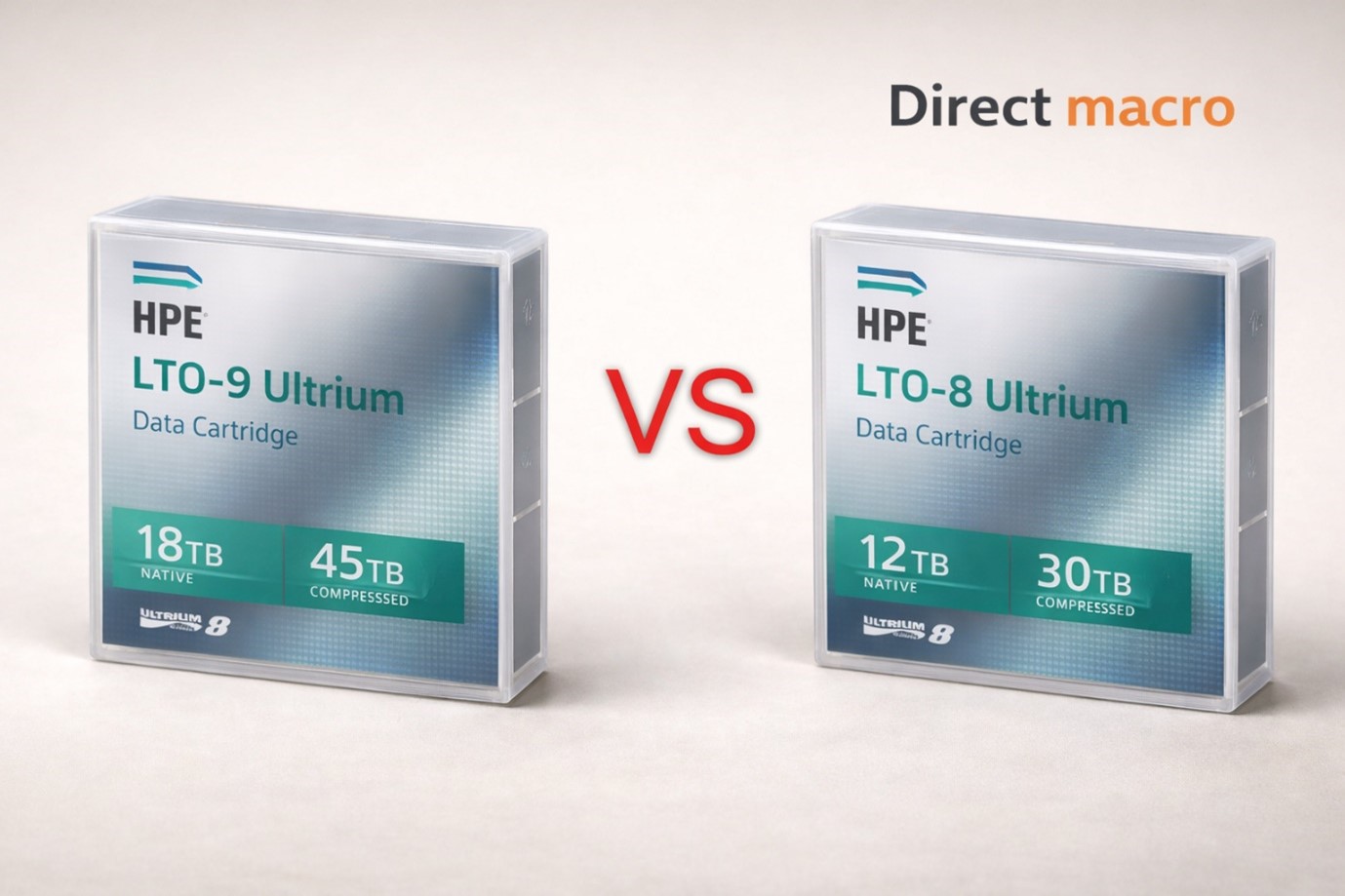AMD ZEN 5 Release Date – How AMD Processors Will Compete with Intel
AMD vs Intel is always the talk of the town. But, with the expected AMD Zen 5 release date somewhere around September 2024, the competition between Intel and AMD processors has reached new levels. However, AMD is the clear winner if they can deliver what’s been speculated in the market.
In this brief blog post, we’ll uncover all the leaks related to its release, specifications, and performance. Plus, how it will make Intel do something extraordinary if they want to maintain their grip in the market. Stick with us until the end, or you might miss something really important.
The Stage is Set for an Intense Battle – All Expected AMD ZEN 5 Release Dates
There are several rumors in the market related to the AMD Zen 5 release date. Lately, we have seen that they like to come out with a new product in the fall and then get a refresher somewhere around in spring. So, if the trend is followed, we may see the launch in September or October 2024.
Moreover, recent success plus AMD’s future plans for 3D V-Cache versions might cause a similar pattern this time. If we had to go with a proper guess, October might be the month, with a possible preview somewhere in June.
However, in January 2024, there were rumors that AMD might launch earlier, around May or June, to get ahead of Intel’s upcoming Arrow Lake processors. But that’s unlikely based on history and what AMD has said.
As for prices, it is expected to be somewhere around the Ryzen 7000 series until or unless something changes out of nowhere in the production costs or silicon supply.
Related: AMD vs Intel 2023: Comprehensive Guide to Best Processors
A Brief Look at AMD Zen 5 Specifications
No concrete specifications from AMD’s end so far. Still, we have come up with a bunch of leaks, rumors, and calculated predictions, so you can have a fair idea of what to expect and how the AMD Zen 5 CPU will turn the tables in 2024.
Number of Processing Units or Cores
First thing first, AMD may stick to similar core configurations with Zen 5. This means we might see AMD Zen 5 with:
- 4 and 6 cores for Ryzen 3 and 5s models respectively
- 8 cores for the 7s models
- 12 and 16 cores for the Ryzen 9s models
Moreover, another rumor speculating on the internet is that AMD might come up with a new type of core design, making Intel’s life more difficult since it is one of the biggest USPs in their recent generations.
If this is true, AMD could offer up to 16 cores on an individual chipset within the CPU. This could lead to different configurations including 8+8, 8+16 or 16+16 which will be an outstanding innovative success in the processing world.

Clock Rate
Regarding architecture, we may not see any noticeable changes in single-core clock speeds. While it might seem a dip not reaching that magical 6 GHz milestone, pushing clock speed further has its own consequences.
For example, a small increase of 2-300 MHz only brings about a five percent performance boost but raises concerns about power and heat. So, it makes sense.
However, multi-thread performance will rise and clocks are rumored to deliver enhanced functions.
On the other hand, AMD has focused on enhancing individual core performance from the ground up. Unlike Zen 4, which was more of a redesign of Zen 3, Zen 5 is supposed to offer more flexibility in chip design.
Rumors suggest that AMD might have raised the ALU (Arithmetic Logic Unit) count from four to six, which may supercharge the overall performance.
Performance
Moving forward, rumors are circulating on the internet that we could see a remarkable 30 percent increase in performance. If this turns out to be true, AMD will crush all opponents without much resistance in 2024. Plus, you may be shocked that this would be the biggest leap since the initial Ryzen release.
Possible AI Enhancements
Regarding new functionalities, we anticipate that AMD Zen 5 will introduce the next generation of AI accelerators. The emergence of new desktop and laptop models in 2024, equipped with enhanced generative AI capabilities, will require advanced processing powers. Additionally, we can look forward to comprehensive support for FP16 AVX512 instructions, along with enhanced compatibility for USB4 and potentially Thunderbolt connectivity as well.

Cache Increases
In parallel, a part of this enhanced performance could stem from a boost in cache size. There’s talk that AMD might bump up the amount of L1 and L2 cache per individual core. While the increases might not be massive due to the high cost and complexity involved in adding cache to chips, a modest uptick in cache size could result in performance gains of AMD Zen 5.
Furthermore, this extra cache will also play a crucial role in supporting the anticipated larger L3 cache, particularly in the Zen 5 AMD refresh with X3D models.
Related: What is CPU Cache and How Does It Impact Performance?
I/O Die
Like Zen 4, Zen 5 AMD’s I/O die is expected to stick with previous manufacturing technology, possibly the 7nm process seen in AMD Zen 4. On the other hand, the upcoming Zen 5 CPU cores are set to leverage TSMC’s cutting-edge 3nm technology. As a result, AMD Zen 5 promises to be more reliable and efficient, so let’s see how it turns out.
AM5 socket
One thing to be happy about with AMD Zen 5 is that it will use the AM5 socket. As a result, upgrading your CPU will be a breeze. Plus, cooler compatibility should also remain intact unless the upcoming CPUs significantly increase their thermal requirements, which doesn’t seem probable for now.
Related: How to Check the CPU Temperature: Mastering CPU Care for Optimal Performance
Overall Design
With all the performance and speed boosters, AMD is probably not up for layout and design tweaks, since it is already quite cool and catchy, especially if you talk about GEN Z and their preferences. So, we may see:
- Chiplets holding the main CPU cores
- I/O die that contains the onboard graphics
- Connectivity silicon for native USB4 + Wi-Fi support
Efficiency
AMD stands out in its recent releases since it requires less power and generates less heat. This has been particularly evident in its strong gaming capability on the X3D models.
Like the previous releases, AMD is expected to stick to similar Thermal Design Power (TDP) levels, with the Eco mode option still available for users seeking maximum efficiency at low power consumption. As a result, Zen 5 may turn out to be the best AMD processor for gaming
FAQs
What does Zen 5 AMD refer to?
AMD’s Zen 5 architecture is on the horizon, drawing closer with each passing day. AMD hasn’t spilt all the beans about what its next-gen chips will bring. However, they could be truly impressive.
Will Zen 5 have more cores?
According to reports, AMD Zen 5 might stick with up to 16 cores, matching Zen 4’s current offerings. Additionally, there are whispers about minimal or no upgrades in clock speeds. While such changes are typical with new generations, they’re less frequent.
Should I upgrade to AM5 from AM4?
AM5 vs AM4 is another talk of the town; however, upgrading to AM5 is a solid choice if you have a budget. On the other hand, sticking with AM4 can be more budget-friendly, especially for gaming. Plus, moving to AM5 means you can repurpose your old AM4 system for another use, essentially getting two PCs for the price of one with just a little extra investment.
Wrapping Up
In short, this new AMD CPU is a serious threat to Intel’s market until it comes with something special. Lastly, stick to Direct Macro for the latest CPU news and the official AMD Zen 5 release date. Plus, we’ll also come with a dedicated product review upon its release. So, stay tuned!
Do you need advice on buying or selling hardware? Fill out the form and we will return.

Sales & Support
(855) 483-7810
We respond within 48 hours on all weekdays
Opening hours
Monday to thursday: 08.30-16.30
Friday: 08.30-15.30








